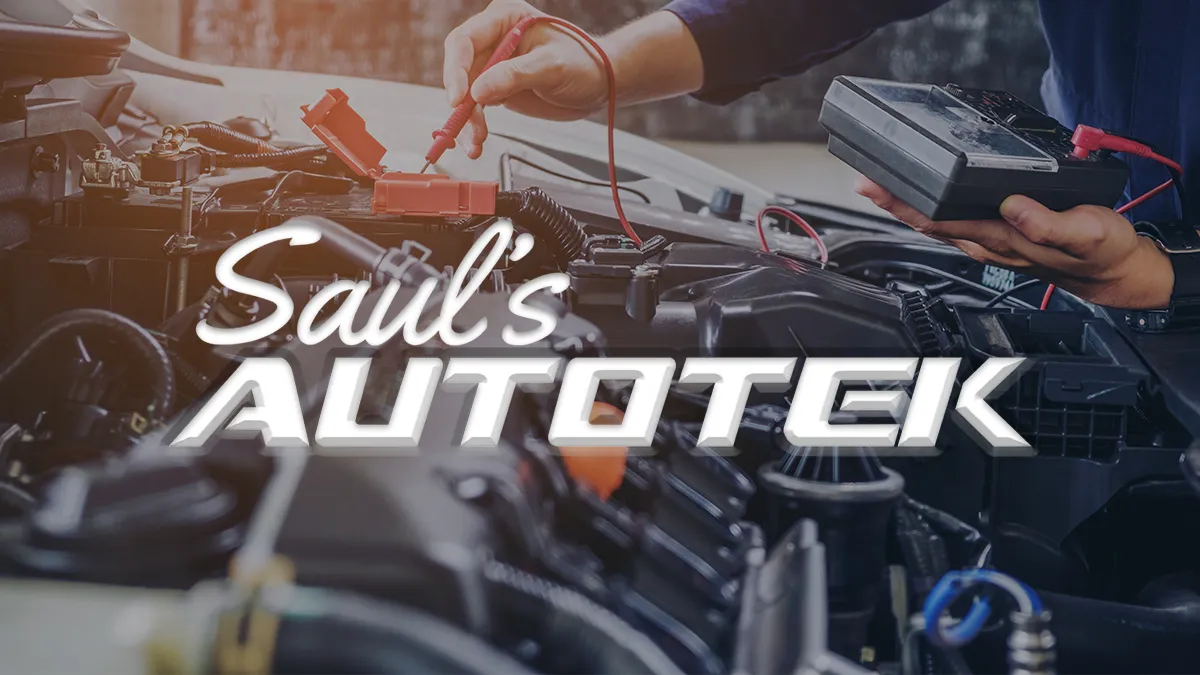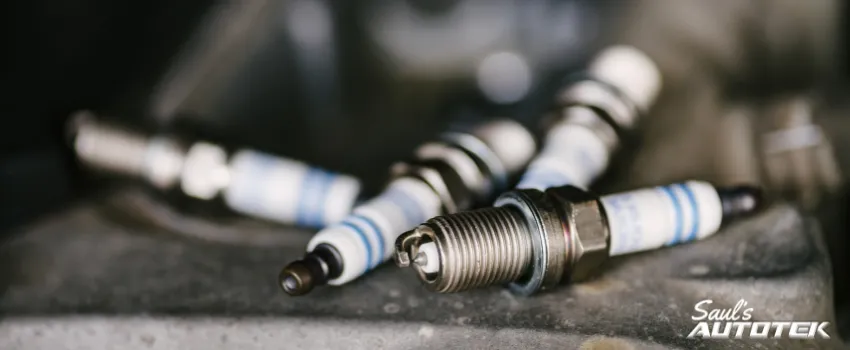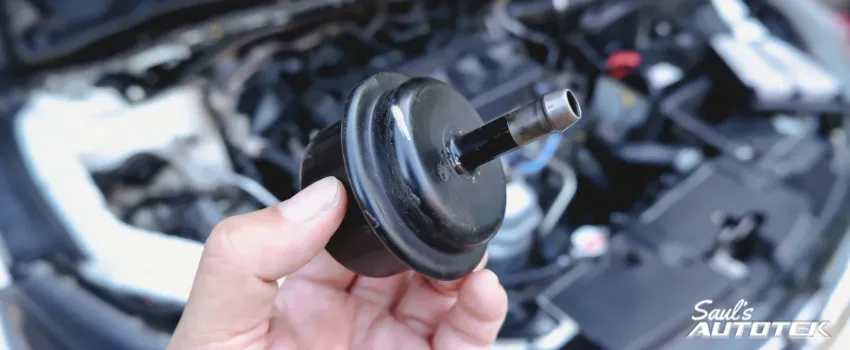Morning folks. I’m Saul Reisman here at Autotek in Greenwood Village, Colorado.
Today, it’s the middle of the summer. Now, who knows what time of year you’re watching this video, but we like to be proactive and stay on top of what’s happening right now in our community so that we can be informative and help you stay on the road in the safest, most reliable way possible.
This week it hit a record 105 degrees in Denver. As a result, we’ve seen lots of vehicles with overheating problems and we’re here today to talk to you about what you can do to minimize the cost when problems like this happen with your vehicle.
Take in case the Subaru sitting behind me, which currently has its engine over my shoulders. We brought this vehicle in for a hard overheat condition. We found a leaking head gasket as a result of over-pressuring in that cylinder head and we had to remove the engine. Replaced the head gaskets, reassemble the engine, and we’re getting ready to put it back in the vehicle.
Now, this is a major repair. It’s extremely cost-prohibitive. It’s very time prohibitive as well. What can you do to prevent that from happening? The reason you don’t want to have this kind of problem is that it takes multiple levels of system failures to get to this point. You can do a lot of things to stop that. First and foremost, come and see us on a regular consistent interval so that we can maintain the fluid levels in your vehicle at every oil change when you get your standard lube oil and filter and we will always top and check those and keep you informed so that you’re never facing any surprises or unknowns. If your vehicle is leaking fluids or is not seeing consistent repairs to keep it up to date, you need to make sure that coolant level is always at the top of the reservoir and at the full mark inside the actual overflow tank.
Now, a lot of folks think that just the overflow tank is where the coolant goes in your vehicle. However, all vehicles have a pressurized radiator cap of some kind that will need to be relieved when the engine is cold so that the fluid can be topped off. This should be done at the start of the day before the vehicle is driven to avoid risking injury to yourself or others as a result of the hot temperatures and pressures that occur inside your cooling system. Now in the case of this Subaru, the cooling fan in the vehicle is what actually failed and as a result, the engine got hotter than it should and ruptured that head gasket due to internal pressures. Now as we walk down the line, you’re going to see a few other vehicles in the same condition. This Jeep Grand Cherokee with a 5.7 Hemi overheated due to a water pump failure. It has a head gasket failure.
This 2008 Toyota 4runner overheated due to a water pump failure as well and was driven to the point that it heated up so bad it as well destroyed the head gasket. This Honda Civic that we’re looking at was on its way from New York yesterday. He made his way most of the way across the country right around the Kansas-Colorado state line. When that elevation starts to pick up, he noticed the engine was getting hotter. He pulled over, topped off the coolant, noticed there wasn’t any in the vehicle, so he filled it up and drove it the next 250 miles to Denver, in that 100 degree heat up about a 4% grade, the duration of that drive. As a result, the water pump that was already failing was not able to keep up. The radiator built excess pressure, which then ruptured the radiator and then due to continued operation, continued to build so much pressure into it, it ruptured the head gasket in the vehicle as well.
As we keep on going down the line, this Chrysler PT Cruiser, unfortunately, came in under the exact same conditions as well. The four-cylinder engine in it is factory equipped with a relatively small water pump, as the engine in this vehicle was originally built for a Dodge Neon that weighs 1000 pounds less than this PT Cruiser. As a result, that water pump and that engine has to work extra hard to keep up with it. The change of that is the margin for error in the cooling system is very small. The unfortunate result is as soon as the water pump failed in this vehicle, that head gasket immediately wasn’t able to take the temperature and pressure that it was under and failed. So, if you want to avoid having costly repairs like these head gasket failures, watch that coolant gauge.
The moment you see it start to move up at all beyond the halfway mark, pull over, turn that car off. Don’t think to yourself, “Well, I’ll make it the next 20 miles to the next town. I’ll stop at that town and get gas. We’ll check it out then.” You need to pull over that vehicle, hit those hazards and let it cool immediately. You might be changing a $100 problem into a $3,000 problem and we want to help you keep those costs as reduced as possible.
So if you’ve got a vehicle that’s running hot in the summer heat, give us a call. We’ll be happy to give any and all advice we can right now with you over the phone while you’re in traffic dealing with it.
We’re here for you 365 days a year while you’re on the road. 303-919-7769 at Saul’s Autotek in Greenwood village.
Schedule Your FREE diagnostic Subaru Outback Auto Repair Upkeep and Repair Appointment
Check out Our Reviews On Yelp! And Leave A Great One For Us!
Join Our Conversation on Facebook
Explore Our Exceptional Denver Auto Repair Services
- Brake Repair Service
- Suspension Repair
- Steering Repair
- Engine Repair
- Automotive Air Conditioning and Heating Repair






